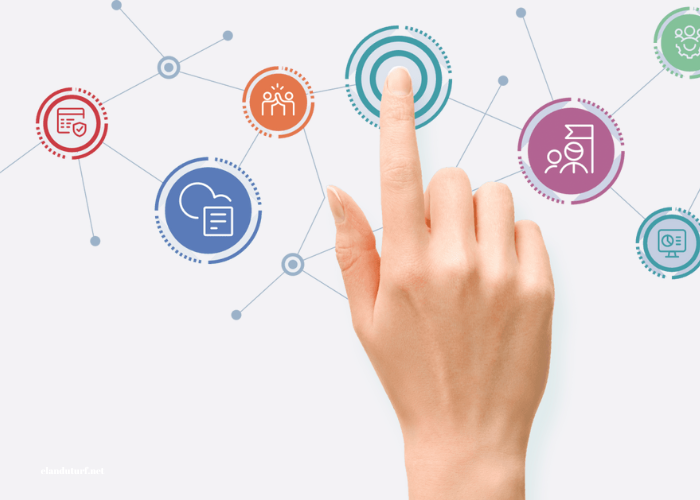As we approach the mid-2020s, businesses around the world are standing on the brink of a revolution driven by technology, social change, and a rapidly evolving economic landscape. The future is not just about adopting new technologies; it’s about innovating business models, strategies, and practices to adapt to an increasingly complex environment. This article explores the key trends that will shape the business landscape for 2025 and beyond, offering insights into how organizations can innovate to stay ahead.
The Rise of Future Trends and Automation
Artificial Intelligence (AI) is no longer a futuristic concept; it’s a reality reshaping industries today. By 2025, AI and automation will be integral to business operations, enhancing efficiency and productivity.
Enhanced Decision-Making
AI algorithms can analyze vast amounts of data far more quickly than humans, providing insights that can inform strategic decisions. Businesses will leverage AI to make data-driven decisions, optimizing everything from supply chain logistics to customer service interactions.
Automation of Routine Tasks
Robotic Process Automation (RPA) will automate repetitive tasks, allowing employees to focus on more strategic and creative work. For example, AI-powered chatbots will handle customer inquiries, freeing up human agents to manage complex issues that require a personal touch.
Personalized Customer Experiences
AI’s ability to analyze customer data will enable businesses to offer personalized experiences at scale. By understanding customer preferences and behaviors, companies can tailor their products, services, and marketing strategies to meet individual needs, thereby enhancing customer satisfaction and loyalty.
The Shift Towards Remote and Hybrid Work
The COVID-19 pandemic accelerated the trend towards remote work, and this shift will continue to shape business practices through 2025 and beyond.
Flexible Work Models
Organizations will adopt hybrid work models that allow employees to choose where they work, blending remote and in-office arrangements. This flexibility can lead to higher employee satisfaction, reduced turnover, and increased productivity.
Emphasis on Employee Well-Being
As companies adapt to remote work, they will need to focus on employee well-being, providing mental health resources, flexible schedules, and opportunities for team bonding. This commitment to well-being will be crucial for attracting and retaining talent in a competitive job market.
Advanced Collaboration Tools
The demand for robust collaboration tools will continue to rise. Businesses will invest in platforms that facilitate seamless communication and project management, ensuring that remote teams can collaborate effectively and maintain productivity.
Sustainability and Social Responsibility
Sustainability is no longer a buzzword; it’s a necessity for businesses aiming to thrive in the future. Consumers are increasingly choosing brands that prioritize environmental responsibility and social equity.
Green Business Practices
By 2025, businesses will be expected to adopt sustainable practices, from reducing waste and energy consumption to sourcing materials ethically. Companies that demonstrate a commitment to sustainability will gain a competitive edge and appeal to eco-conscious consumers.
Corporate Social Responsibility (CSR)
CSR initiatives will become integral to business strategies. Companies will invest in community programs, ethical sourcing, and fair labor practices, demonstrating their commitment to social responsibility. This shift not only enhances brand reputation but also fosters customer loyalty.
Circular Economy
The concept of a circular economy, where products are designed for longevity and recycling, will gain traction. Businesses will need to rethink their product life cycles, embracing models that minimize waste and maximize resource efficiency.
The Internet of Things (IoT) and Smart Technologies
The Internet of Things (IoT) will revolutionize how businesses operate by connecting devices and systems to gather and analyze data.
Data-Driven Insights
IoT devices will provide real-time data on operations, allowing businesses to optimize processes and improve decision-making. For example, manufacturers can monitor machinery performance and predict maintenance needs, reducing downtime and costs.
Enhanced Customer Engagement
Businesses will leverage IoT to enhance customer engagement. Smart devices will offer personalized experiences, such as tailored recommendations based on usage patterns, thereby increasing customer satisfaction.
Improved Supply Chain Management
IoT will transform supply chain management by providing visibility into every stage of the process. Companies can track inventory levels, monitor shipment conditions, and forecast demand more accurately, leading to greater efficiency and reduced costs.
The Evolution of E-Commerce
E-commerce has seen explosive growth, and this trend will continue as consumer preferences shift towards online shopping.
Omnichannel Retailing
Businesses will need to adopt an omnichannel approach, integrating online and offline experiences to provide seamless customer journeys. This means ensuring that customers can interact with the brand through various channels—websites, social media, brick-and-mortar stores—with a consistent experience.
Social Commerce
Social media platforms will become key players in e-commerce, enabling businesses to sell directly through social channels. This trend will blur the lines between social interaction and shopping, creating new opportunities for engagement and sales.
Augmented Reality (AR) and Virtual Reality (VR)
AR and VR technologies will enhance the online shopping experience, allowing customers to visualize products in their environment before making a purchase. For instance, furniture retailers can offer AR apps that let customers see how a piece of furniture would look in their home.
The Future of Financial Services
The financial services industry is undergoing a transformation driven by technology, changing consumer expectations, and regulatory pressures.
Fintech Innovations
Fintech companies are redefining how consumers interact with financial services, offering everything from mobile payment solutions to robo-advisors. Traditional banks will need to adapt to this competitive landscape by adopting innovative technologies and improving customer experiences.
Blockchain and Cryptocurrency
Blockchain technology will gain prominence, offering secure and transparent transaction methods. Cryptocurrency may become more widely accepted, prompting businesses to consider how they can integrate these digital currencies into their operations.
Enhanced Cybersecurity
As financial transactions increasingly move online, the need for robust cybersecurity measures will grow. Businesses will need to invest in advanced security technologies to protect sensitive customer data and maintain trust.
Continuous Learning and Reskilling
In a rapidly changing business environment, continuous learning and reskilling will be essential for organizations and their employees.
Emphasis on Lifelong Learning
Companies will prioritize a culture of lifelong learning, offering training and development opportunities to help employees adapt to new technologies and changing market demands. This investment in employee growth will enhance talent retention and satisfaction.
Partnerships with Educational Institutions
Businesses will increasingly collaborate with educational institutions to develop programs that address skills gaps in the workforce. These partnerships will help ensure that employees are equipped with the skills needed for the future.
Use of Learning Technologies
Online learning platforms and educational technologies will facilitate employee training, allowing for flexible and accessible learning opportunities. Companies will leverage these tools to provide targeted learning experiences that align with individual career paths.
The Importance of Agility and Adaptability
In an era of rapid change, businesses must prioritize agility and adaptability to thrive.
Agile Business Models
Organizations will need to adopt agile business models that allow them to respond quickly to market changes and consumer demands. This may involve restructuring teams, implementing agile methodologies, and fostering a culture of innovation.
Scenario Planning
Businesses will engage in scenario planning to anticipate potential disruptions and develop strategies to address them. This proactive approach will enable companies to remain resilient in the face of uncertainty.
Focus on Customer Feedback
Organizations will increasingly rely on customer feedback to guide product development and service improvements. By actively listening to customers and incorporating their input, businesses can create offerings that meet real needs and preferences.
Conclusion
As we look towards 2025 and beyond, the business landscape will be characterized by rapid technological advancements, changing consumer expectations, and a growing emphasis on sustainability and social responsibility. Companies that embrace innovation, prioritize agility, and focus on customer experiences will be well-positioned to thrive in this dynamic environment.
To navigate the complexities of the future, businesses must be willing to adapt their strategies, invest in new technologies, and cultivate a culture of continuous learning. By doing so, they can not only survive but also lead in an ever-evolving marketplace, turning challenges into opportunities for growth and success. The future of business is bright for those who dare to innovate.




